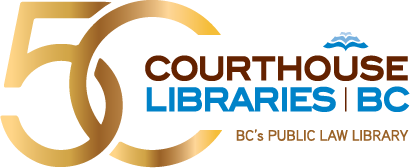Paralegals prepare legal documents and conduct research to assist lawyers or other professionals. They are employed by law firms, by record search companies and in legal departments throughout the public and private sectors.
Independent paralegals are usually self-employed. They provide legal services to the public as allowed by government legislation or provide paralegal services on contract to law firms or other establishments.
Designated Paralegals
The Law Society’s Code of Professional Conduct for BC defines a “paralegal” as a trained professional working under the supervision of a lawyer. A “designated paralegal” is defined as an individual permitted to give legal advice and represent clients before a court or tribunal. The Law Society practice resource specifies that designated paralegals, under a lawyer’s supervision, can appear before tribunals, as permitted, or at family law mediations.
Provincial Court Practice Direction GEN 05 sets out the limitations and process for designated paralegals (among other non-lawyers) in appearing for clients in court, including the type of proceedings that designated paralegals may not appear, the steps they must take before and while appearing in court, and the requirement that the supervising lawyer be available by phone or other electronic means when they provide certain services, including representing clients in court. The Law Society advises that the lawyer check with the tribunal or mediator before sending the designated paralegal to appear.
Content review July 28, 2025
Code of Professional Conduct for British Columbia (ch. 6) – Law Society of BC
How a person who’s not a lawyer may appear for a client in Provincial Court – BC Courts
Paralegals – Law Society of BC
Law Society Rules, rule 2013 – Law Society of BC
GEN 05 Non-Lawyers Appearing for Clients in Court – BC Courts
Paralegal in British Columbia – Government of Canada Job Bank
